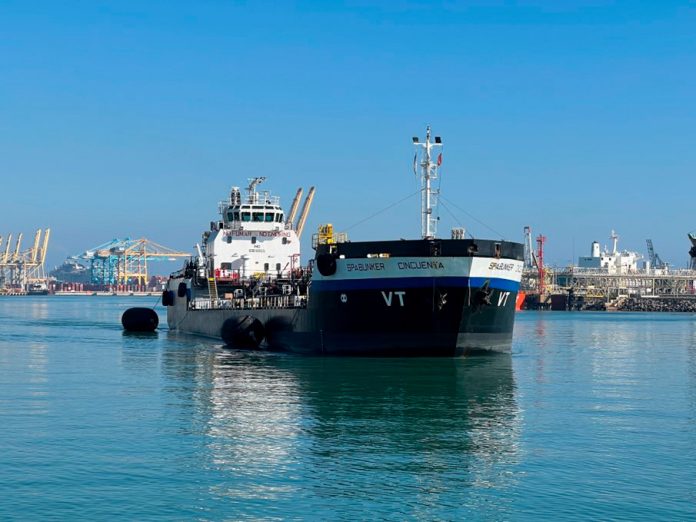Cepsa, a major supplier of energy for maritime transport in Spain, has undertaken the largest supply of second-generation biofuels to date at the Port of Barcelona.
This operation, which was carried out in the Mediterranean aboard a 350-meter-long container vessel operated by Hapag-Lloyd, marks the energy company’s first initiative in Barcelona and places the Spanish port as a vital player in the decarbonisation of marine transportation.
The supplied biodiesel contains a 24% sustainable component, which will prevent the emission of 2,860 tons of CO2, equivalent to planting 34,300 trees. This biofuel has been produced from used cooking oils.
“Second-generation biofuels can be used in ships without the need for modifications to their engines, and they have a high potential for reducing CO2 emissions compared to conventional fossil fuels, achieving a reduction of up to 90%, which makes them an ideal immediate solution. That’s why we want to make them available in all the ports in which we operate and lead their production in this decade to help our customers meet their own decarbonization challenges,” stated Samir Fernández, director of Marine Fuel Solutions at Cepsa.
Currently, Cepsa can provide these sustainable fuels by barge in the Port of Barcelona and the Strait of Gibraltar area, as well as via tanker in other ports where it operates.
Cepsa’s 2030 plan, “Positive Motion,” intends to promote the decarbonisation of heavy transport (air, sea, and land) through the creation of green molecules. With a production capacity of 2.5 million tons per year and 2 GW of electrolysis capacity, the firm wants to be the main biofuel producer in Spain and Portugal by 2030.







